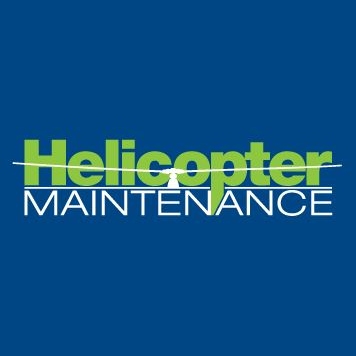
If You Think Training is Expensive, See What Ignorance Will Cost You

I don’t remember when I first heard the expression that is the title of this article — but it made a lasting impression on me and I hope it does with you, too. As helicopter maintenance professionals, we see the increasing role technology plays in our daily lives.
Cell phones, computers and the Internet have become increasingly more of a need than a want in how we get things done at work and at home. New helicopters entering service are full of new technology. Whether it is avionics, engines or airframe structural materials, technology is constantly moving forward and changing the game.
“Older” technology isn’t going away. There is a tremendous number of helicopters still in service that don’t have the latest and greatest and newest of anything, and they fly great! All helicopters need qualified maintenance professionals to maintain them. By qualified, I mean that the individuals performing the maintenance have the appropriate skills and training. On the more complex systems, “qualified” mechanics have been to a school on that system, and they have attended that school within the last 36 months. Recurrent training should not be for flight crew only.
Training offered on new helicopters and systems is readily available. In some instances, the training is free. The training is usually provided through the helicopter’s OEM, companies that have systems on the helicopter, or a company that has contracted with the OEM to provide training services.
That is not necessarily true any longer for older technology helicopters and systems, especially avionics systems. The change in avionics is probably the fastest-growing sector in our industry. In a previous life, when I was a principal training engineer for a large aerospace OEM, I would see time after time that the skills and knowledge to understand and properly troubleshoot older avionics systems at both the customer and OEM level decreased as more and more “old timers” retired. Over time, the aircraft/system went out of production, and training was no longer offered. In some cases, there was no one around with the knowledge to do the training!
An alternative to the older technology training issue is a third-party vendor. This is a company or individual that is not currently connected with an aircraft OEM or system vendor, but has the qualifications to do the training. In many instances, these individuals worked for the aircraft or system OEM and left to start their own company to work for themselves.
Qualifications — there is that word again. As a helicopter maintenance professional, you must have attended a few schools in your career. Have you ever given any thought as to what qualifications your instructors had? What made those individuals worthy of your attention and the cost paid for their services? Here are a few questions you or the person sending you for training might consider:
Is the class instructor an A&P who holds a current IA?
Has the instructor ever actually worked on the aircraft/system being taught?
Did the instructor ever work for the aircraft/system OEM, and if so, in what capacity?
Does the instructor hold a college degree in a field of study related to your job?
Has the instructor written any approved texts or manuals on the aircraft/systems he or she is teaching?
Did the instructor develop the course?
Has the instructor held, or does he or she currently hold designated engineering representative (DER) status with the FAA?
Is the training class accepted for IA renewal?
Where and how did the instructor get his or her training?
What have you heard about the instructor from others who attended that instructor’s courses?
These are just a few questions that come to mind. This is also not implying that one form of training is any better than another. I hope I this series of questions will help you and your company get the best bang for your buck when it comes to spending time and money on maintenance training. Yes, training is expensive, but so are the aircraft and systems that you are maintaining, to say nothing of the lives that depend on your skill and knowledge every time the aircraft goes flying. If you think training is expensive, see what ignorance will cost you.

R. Fred Polak | Editor
